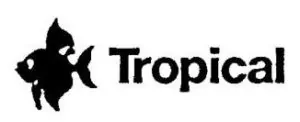A long period of coexisting trademarks does not automatically mean the peaceful coexistence of trademarks – and certainly does not lead to the conclusion that there is no likelihood of confusion between the trademarks, the CJEU ruled in invalidity proceeding “Tropical”.
Peaceful coexistence of trademarks
 Is there peaceful coexistence of marks if they provide the necessary proof of use of the mark on the same market and for the same goods over a long period of time? Only if there is no likelihood of confusion between the marks and this is proven, the ECJ ruled in the Tropical case (EU:T:2019:525), and the likelihood of confusion cannot be excluded due to the long coexistence of the marks.
Is there peaceful coexistence of marks if they provide the necessary proof of use of the mark on the same market and for the same goods over a long period of time? Only if there is no likelihood of confusion between the marks and this is proven, the ECJ ruled in the Tropical case (EU:T:2019:525), and the likelihood of confusion cannot be excluded due to the long coexistence of the marks.
By the way, the peaceful coexistence of trade marks in one part of the EU does not exclude confusion in other EU Member States.
Read more about this at our article Kerrygold and Kerrymaid already co-existing in the UK and Ireland.
Word mark Tropical vs. word and figurative mark Tropical
The dispute arose because in 2003 Tadeusz Ogrodnik (Poland) applied to the European Patent and Trade Mark Office for registration of a word and figurative mark ‘Tropical’, which was registered in September 2004. However, it was not until November 2011 that the defendant Aviário Tropical, SA (Portugal) filed an application for the invalidity of that mark and relied on its own Union word earlier mark ‘Tropical’, which was registered for the same goods and Nice classes as the contested mark. More specifically, it concerned the similarity of goods such as ‘fish food’ and ‘preparations for farming fish, ornamental fish and small animals’ and ‘preparations for breeding birds, reptiles and amphibians’.

Subsequently, judgments were delivered at several instances in which a likelihood of confusion between the two marks was finally established by the decision of 14 February 2017 in Case T-276/17 (‘the contested decision’), since the marks are phonetically identical and very similar visually and conceptually.
Plaintiff Ogrodnik therefore essentially raised two objections to the contested decision: the Board of Appeal based the contested decision on irrelevant criteria for assessing the likelihood of confusion. Above all, the fact that the evidence of use of the mark on the same market and for the same goods was provided by both parties over a long period of 16 years shows that the marks coexisted peacefully and that there was no likelihood of confusion.
Relevant criteria for the assessment of likelihood of confusion
The European Court (CJEU) rejected the allegation of irrelevant criteria in the assessment of likelihood of confusion. According to the case-law, the criteria accepted were the nature, intended purpose, use and complementarity of the goods in question. In addition, other factors such as the distribution channels of the goods concerned and marketing by the same undertakings may also be taken into account. The European Court therefore held that the Board of Appeal was right to use the factor relating to the intended use of the goods.
Tropical in word and image – peaceful coexistence in Portugal?
The fact that the two marks in question existed undisputedly side by side for a long period of time did not lead to the conclusion that there was no likelihood of confusion, the CJEU clarified. Admittedly, the likelihood of confusion between two marks can be regarded as reduced if two marks coexist on a particular market. The coexistence of the two marks must have existed for a sufficiently long time to be able to influence the perception of the relevant consumer – however, this was the case in the present case.
However, the plaintiff had a duty to prove that the peaceful coexistence of the marks was based on the absence of any likelihood of confusion – at least during the proceedings before the EUIPO concerning relative grounds for refusal, the court explained. It is not sufficient to prove that the likelihood of confusion between the conflicting marks is reduced or even eliminated if the trade mark applicant only submits a list in which his marks are listed which he claims to have coexisted with the opponent’s earlier mark on the market, the CJEU ruled already in 2005 in Sada v. Sadia (EU:T:2005:169).
Nor can the absence of a likelihood of confusion be inferred solely from the fact that the applicant did not previously object to the declaration of invalidity of the registration of the contested national trade mark, the Court added. The Board of Appeal was therefore fully entitled to find, that the long and undisputedly side by side existence of the marks could not influence the findings relating to a likelihood of confusion in the present case.
Finally, the CJEU partially upheld the action; the CJEU upheld the action for the goods for which plaintiffs Ogrodnik had submitted arguments and evidence both before the Cancellation Division and before the Board of Appeal and which are more likely to be terraristic. The common use of these goods, which in the contested decision constituted a likelihood of confusion, did not have a sufficiently direct relationship between the contested goods, the CJEU held.
For all other goods, however, the CJEU confirmed the likelihood of confusion and the declaration of invalidity of the contested word and figurative mark Tropical.
Do you need assistance in trademark litigation? Or is your trademark contested?
Our attorneys have many years of expertise in trademark law as well as in the entire field of intellectual property and are entitled to represent you before any court in Germany as well as internationally.
If you are interested, please contact us.
Sources:
Judgement of CJEU “Tropical” EU:T:2019:525
Image:








Leave a Reply